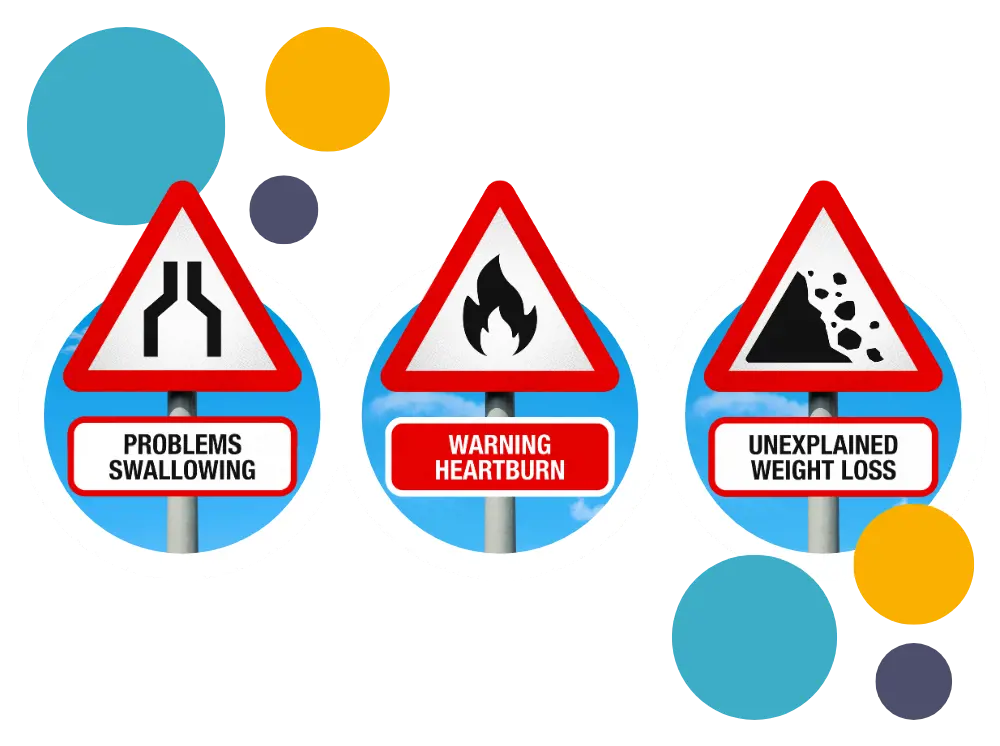It's never good to ignore the signs
Little niggles here and there can often be ignored, or we turn to over-the-counter medicine to relieve their symptoms. But if they don’t seem to be getting any better, then it’s best to get checked by a GP.

Little niggles here and there can often be ignored, or we turn to over-the-counter medicine to relieve their symptoms. But if they don’t seem to be getting any better, then it’s best to get checked by a GP.

In the North West of England, oesophageal cancer rates are 24% higher than the national average, and all five counties record higher than average rates of this cancer.
Sometimes, signs of oesophageal cancer can be easily ignored and mistaken for less serious conditions. That's why speaking to a GP is so important, as an early diagnosis could lead to better outcomes.
Oesophageal cancer is a condition that affects the tube that carries food to the stomach and can occur in any part of the oesophagus, including where it joins the stomach.
It’s more common in older people, with around 40% of new cases occurring in people over the age of 75. It also tends to be more common in men than in women.
Anyone can get it, but you might be more at risk if you:
Barrett's oesophagus is sometimes called a pre-cancerous condition and is caused by some of the cells in your oesophagus growing abnormally. Although it’s not common, if you have it, you're slightly more likely to get oesophageal cancer.
Many oesophageal cancers are also linked to lifestyle. For example, you're more likely to get it if you're overweight, smoke or drink too much alcohol.
Oesophageal cancer can often be hard to spot due to its symptoms.
That’s why knowing what to look out for and when to speak to your GP is so important. Especially if you find your symptoms change, get worse or do not feel normal to you. As it could be your body trying to tell you something.
The main symptoms of oesophageal cancer can affect your digestion, such as:
Other symptoms include:
Other less common symptoms include:
If you have any of these symptoms, it's never good to ignore them. Instead, it's best to get them checked because the sooner you do, the better the outcome.